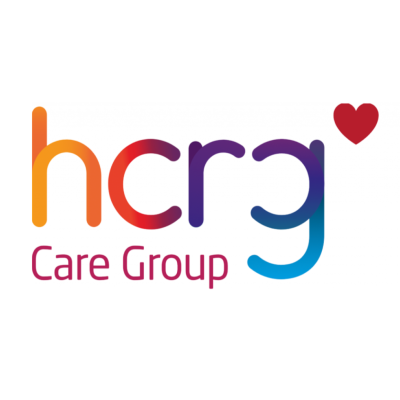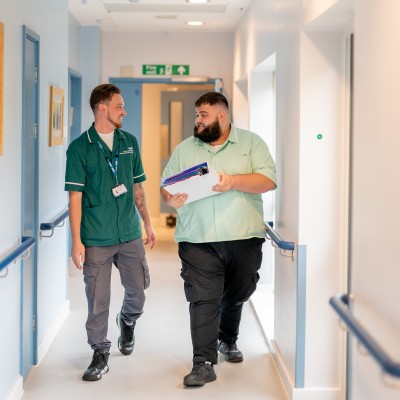Publish date: 29 January 2024
More than 40,000 people with mental health problems are being supported back into employment thanks to an NHS programme, new data shows.
The figures come alongside a new campaign launching this month (January) urging more people to sign up for help they might need through the NHS Talking Therapies service.
As part of a pilot programme across the country, currently 40,000 people are being linked up with employment advisors to support them back into work.
Once individuals are signed up to the service, the NHS ensures that employment advisors are on hand to offer help with writing CVs, setting career goals, and giving them the confidence to apply for vacancies.
Employment and mental health are closely linked, and research shows employment support from an adviser, alongside therapy, can help improve symptoms of anxiety and depression.
By March next year, every person accessing NHS Talking Therapies will be offered the chance to benefit from employment advice.
Backed by famous faces, including TV presenter Matthew Johnson and influencer Rehana Yasmin, the NHS campaign will encourage more people to get mental health support if they are struggling with social anxiety, panic attacks, post-traumatic stress or obsessions.
Anyone can sign up to the NHS Talking Therapy Programme, either online at nhs.uk or by contacting their GP.
Claire Murdoch, NHS National Mental Health Director said: “People with mental health issues can particularly struggle at this time of year, with dark nights and feeling isolated – but seeking help through an NHS Talking Therapies Service can be one of the best steps someone can take to overcome their mental health issues and get back on track. As part of treating people’s mental illness, the NHS supports people to achieve their goals including getting people back to work with research showing that employment can help improve symptoms of anxiety or depression. If you are struggling with your mental health, I urge you to seek help from the NHS – you can refer yourself online to our world leading Talking Therapies Service”.
Minister for Mental Health Maria Caulfield said: “Our ambition is to improve the lives of thousands more people by helping them early on with their mental health and getting them back into work. NHS Talking Therapies are key to this. If your mental health is suffering, it can have a huge impact on your work, family and social life. Making sure we have that support available 24/7 for people who need it is crucial not only for people’s wellbeing, but for our economy. This is part of our ongoing work to transform our country’s mental health services, with up to an additional £2.3 billion being invested annually by 2024 to expand services, so an extra 2 million people can get mental health support”.
Dr Zoe Williams, GP and media medic is also supporting the campaign. She said: “People struggling with feelings of anxiety or depression need to know that they shouldn’t suffer in silence and that there is help available for them. The NHS Talking Therapies Service offers free, confidential advice by trained professionals and you can be referred by a GP, such as myself, or you can refer yourself online if you prefer. It’s always OK to ask for help if you are worried about your mental health and getting professional help early can go a long way if you are not coping with feelings or anxiety or depression”.
As part of the NHS campaign, there will be 3 public displays unveiled in January featuring testimonies from people who have used the service, to encourage other people to come forward for help if they need it.
Harmeet, 40, from Berkshire says her mental health is “better than ever before” after reaching out to Talking Therapies.
After several deaths in the family, postnatal depression and a miscarriage, Harmeet’s mental health deteriorated and she was feeling depressed and anxious. She referred herself for cognitive behavioural therapy through NHS Talking Therapies, which put her on the path to getting better.
Harmeet recalls: “Talking Therapies helped pull me out of the dark hole I found myself in. By reaching out for help, especially to someone who is independent and totally non-judgmental, I was able to share what felt heavy and release the weight I had been carrying. I can’t shout about it enough – my mental health is better than ever before”.
Paul, 55, from the West Midlands, first started experiencing mental health issues in 2009 during his time as a police officer, when he was diagnosed with post-traumatic stress disorder.
After researching mental health services online, he referred himself to NHS Talking Therapies and received cognitive behavioural therapy and counselling over a period of 18 months. He also received Eye Movement Desensitization and Reprocessing (EMDR) therapy.
Paul recalls: “When I first sought help through NHS Talking Therapies, I felt that someone cared immediately. Just those first conversations over the phone, and when I walked in for my first appointment and was met by the receptionists’ ‘smiley eyes’, I felt comfortable and welcomed and that someone was going to listen”.
The NHS Long Term Plan committed to helping tens of thousands of patients with severe mental illness into work through the Individual Placement and Support Scheme, and NHS investment in mental health is growing by at least a further £2.3 billion a year.
If you are struggling with anxiety or depression, please do come forward for help. Ask your GP for a referral to NHS Talking Therapies, or you can refer yourself via nhs.uk/talk.









